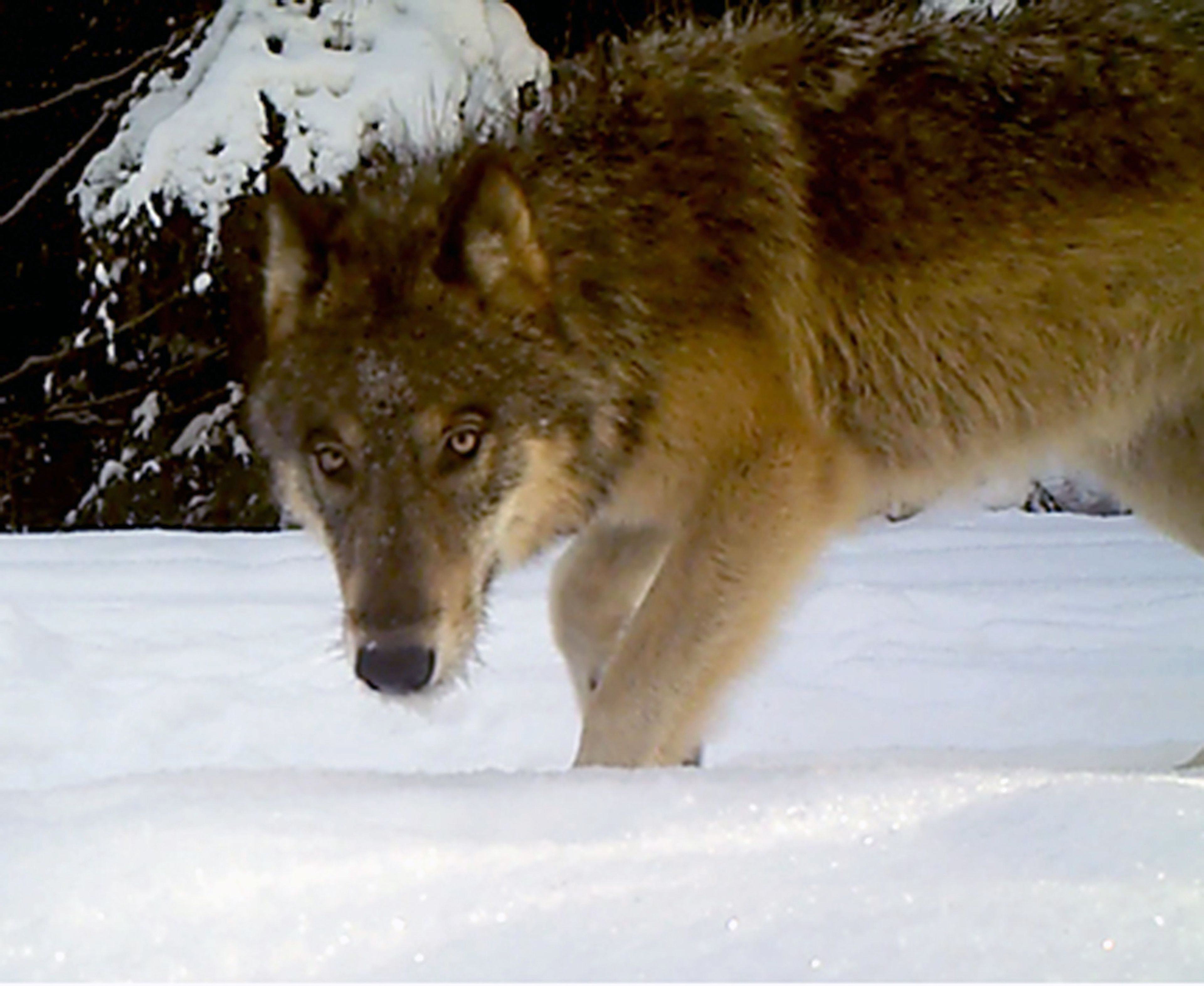Environmental groups sue commission over wolf vote
Lawsuit stems from WFW panel’s decision not to adopt formal rules about when the predator may be killed after killing livestock
A coalition of environmental groups is suing the Washington Fish and Wildlife Commission for its decision not to adopt formal rules governing when state-protected gray wolves may be killed for repeated attacks on livestock.
Led by the Center for Biological Diversity, the groups contend the nine-member commission was wrong to reject a set of rules that were specifically requested by Gov. Jay Inslee and that by doing so it nullified his authority to grant appeals from the public.
“Gov. Inslee recognizes that Washington needs science-based nonlethal strategies to protect wolves and livestock, but some wildlife commissioners are ignoring his request,” Sophia Ressler, a staff attorney at the Center for Biological Diversity, said in a news release. “We’re asking the court to recognize the governor’s authority and require commissioners to finally approve wolf rules they were supposed to finalize long ago. We need rules that put a check on the state’s trigger-happy approach to managing imperiled wolves.”
Other groups involved in the lawsuit filed in Thurston County Superior Court include Cascadia Wildlands, Kettle Range Conservation Group, Western Watersheds Project and WildEarth Guardians.
The legal dispute stems from 2019 and 2020, when the Washington Department of Fish and Wildlife struggled with chronic attacks on livestock by wolves in Ferry County and attempted to reduce attacks by killing wolves, sometimes removing entire packs. The controversial move outraged some members of the public.
The groups petitioned the Washington Fish and Wildlife Commission in May of 2020 to adopt or amend rules to make clear the steps livestock producers must take to deter wolf attacks and to require that nonlethal deterrents be tried before wolves could be killed by the state.
The commission rejected the petition and the groups appealed to Inslee.
In July of 2020, the governor accepted the appeal and directed the commission to initiate a rulemaking process. Inslee said in a letter to the commission that while he was not legally able to dictate the outcome, he asked commissioners to adopt rules that would define requirements for range riders and other non lethal deterrents, and develop action plans for areas with chronic wolf-livestock conflicts.
The commission, along with the Washington Department of Fish and Wildlife worked on the rules for two years. During that time, the department also evolved its protocols for addressing wolf-livestock conflict and reduced the frequency and number of lethal wolf removals.
Last month, the commission, in a split 5-4 vote, opted not to adopt the rules. Those on the prevailing side argued the rules were not needed and would remove flexibility from the state’s professional wildlife managers. Some on the losing side argued the rules were needed but did not go far enough.
In response to emailed questions from the Tribune, Ressler said when the governor reversed the commission’s rejection of the petition from the environmental groups, he essentially directed the commission to adopt a rule, even if he was unable to dictate exactly what should be in the rule.
“What we are arguing is that when he grants an appeal of a petition for rulemaking and asks for new or amended rules that the outcome needs to be actual rules and not just the process,” she wrote. “Otherwise, his appeal authority holds no weight because it ultimately can have the same effect as denying a petition to begin with.”
Commission Chairperson Barbara Baker did not immediately respond to a request for comment.
As of the end of last year, Washington had an estimated minimum wolf population of 204 animals in 33 packs, including five in the state’s southeastern corner. Wolves are protected as threatened under the state’s Endangered Species Act and in the western two-thirds of the state, as threatened under the federal Endangered Species Act.
Barker may be contacted at ebarker@lmtribune.com or at (208) 848-2273. Follow him on Twitter @ezebarker.








